1949
Zé Ramalho (born José Ramalho Neto on October 3, 1949 – Brejo do Cruz – Paraíba, Brazil) is a Brazilian composer and performer. Zé Ramalho has collaborated with various major Brazilian musicians.
Zé Ramalho at 3 years old
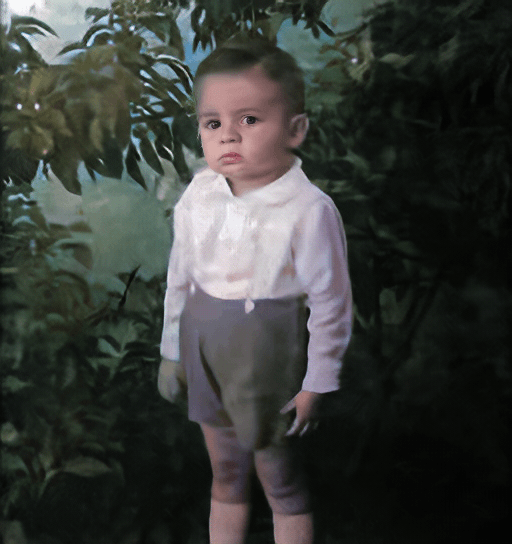
Brejo do Cruz - PB - 1952
At 7 years old
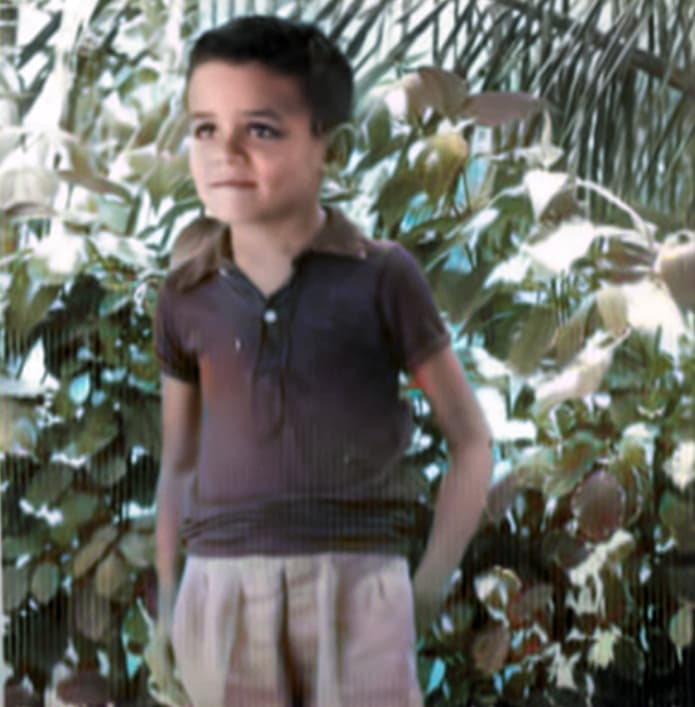
Campina Grande - PB - 1956
As with many musicians back in his younger days, he was first influenced by rock and roll: however, at the age of 20, his music took a more Northeastern Brazilian approach. Zé Ramalho’s lyrics however, are very influenced by the socio-economic difficulties faced by the average Brazilian.
Zé Ramalho was born to Estelita Torres Ramalho, an elementary school teacher, and Antônio de Pádua Pordeus Ramalho, a “seresta” performer. When Zé was three years old, his father drowned in a reservoir of the “sertão”, and he was then adopted by his grandparents.
Zé, Avôhai and his grandmother Soledade
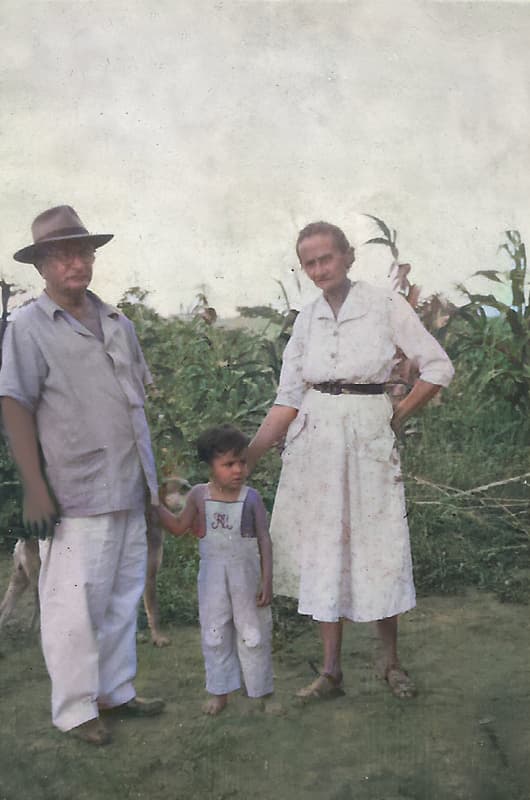
Brejo do Cruz - RJ - 1953
His love for his grandfather would later be expressed in the song “Avôhai”. After spending most of his childhood in Campina Grande, his family moved to João Pessoa. He was expected to become a doctor.
1961 - 1970
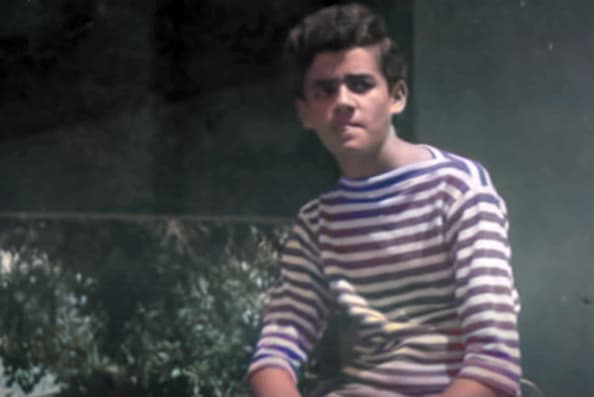
Campina Grande - PB - 1963
As soon as the family settled in João Pessoa, Zé took part of some Jovem Guarda performances, being influenced by Renato Barros, Leno & Lílian, Roberto Carlos & Erasmo Carlos, Golden Boys, The Rolling Stones, Pink Floyd, The Beatles, Rolling Stones and Bob Dylan. Before composing, he used to write “Cordel” literature.
Os quatro loucos - Santa Roza Theater
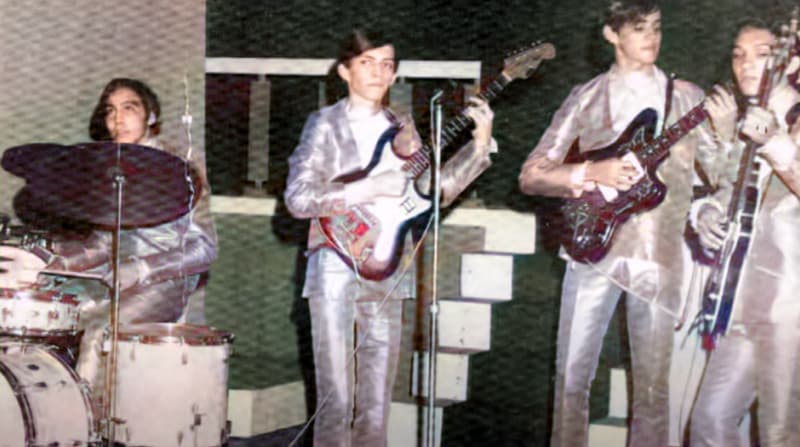
João Pessoa - PB - 1967
Os quatro loucos with Roberto Carlos
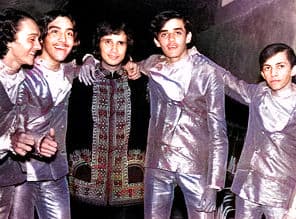
João Pessoa - PB - 1967
1970 - 1979
In 1971 Zé married to Isis Galvão and in 1974, his first son, Christian, was born.
Zé in 1974
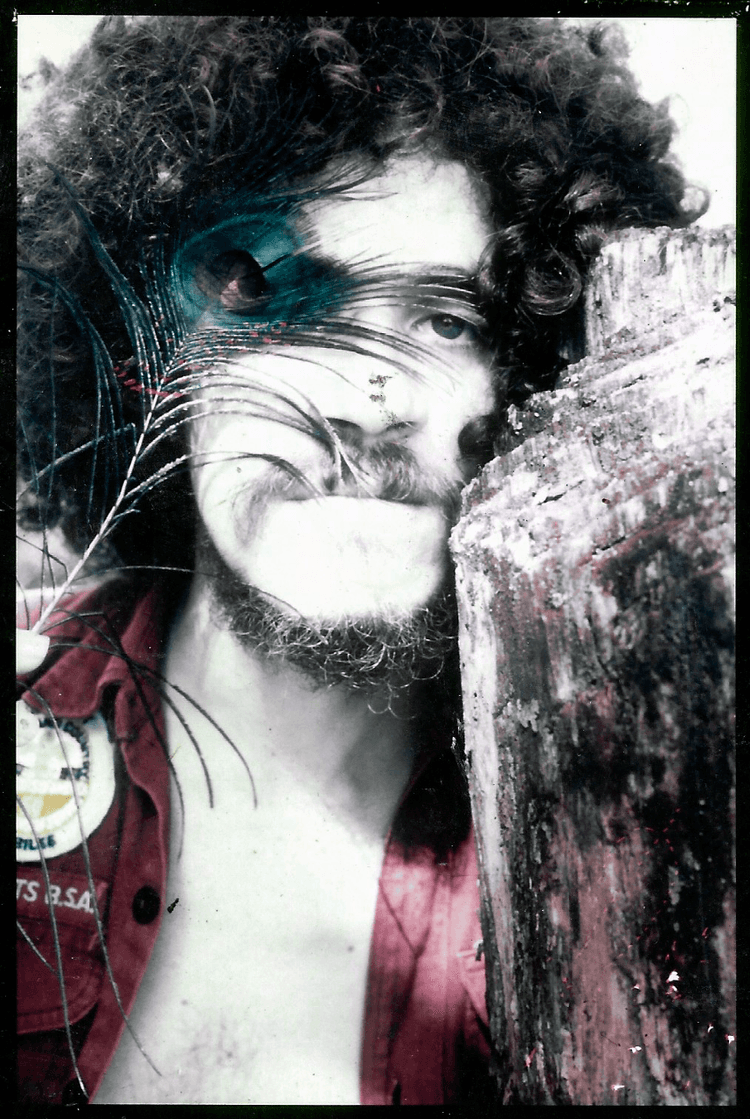
João Pessoa - PB - 1974
Also in 1974, he performed for Tânia Quaresma’s movie “Nordeste: Cordel, Repente e Canção” soundtrack. At that time, he figured out a way to mix all the influences he received throughout his life: from rock’n’roll to “forró”. In 1976, he moved to Rio de Janeiro.
In 1977, he recorded his first album, the self-titled “Zé Ramalho”. A year later, his second son, Antônio Wilson was born and he broke up with Isis. In 1979, the third son, João, born to him and to his second wife, the singer Amelinha (Amélia Cláudia Colares). Zé released his second music album, “A Peleja do Diabo com o Dono do Céu”. He then moved to Fortaleza in 1980, where he wrote and published his book “Carne de Pescoço” (“Neck Flesh”).
1975 photo
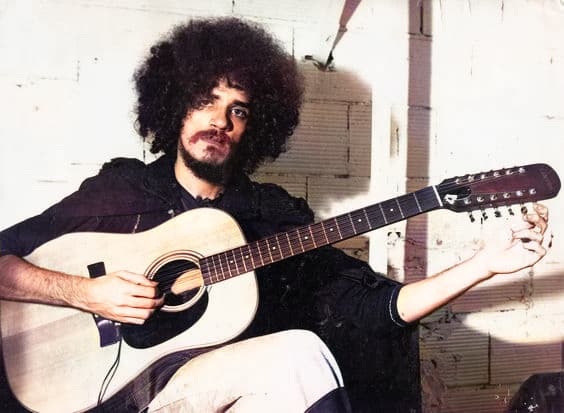
Rio de Janeiro - RJ - 1975
Publicity photo of A Peleja do Diabo com o Dono do Céu
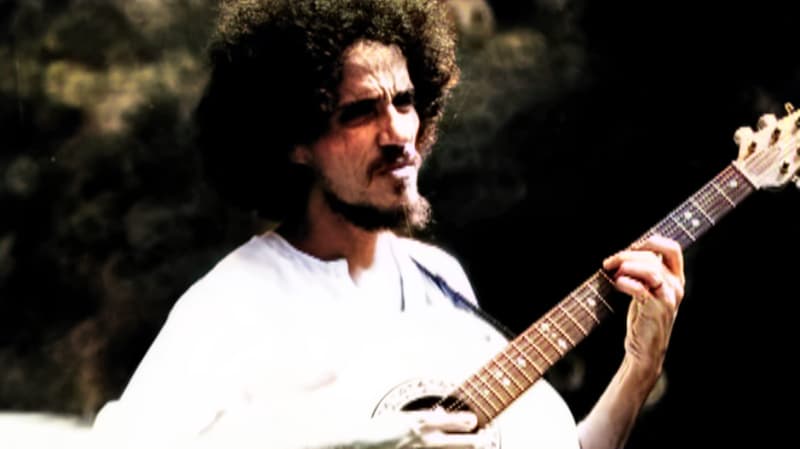
Rio de Janeiro - RJ - 1979
1980 - 1989
In 1981, in Fortaleza, his first daughter, Maria Maria was born and the third album, “A Terceira Lâmina”, was released afterwards, as well as the fourth one, “Força Verde” (1982). Mystic and metaphoric themes, like Greek mythology were very present in their lyrics. In 1983, after releasing his fifth album “Orquídea Negra”, with Jorge Mautner’s song-title, Zé broke up with Amelinha and went to live in Rio de Janeiro.
MPB-80 Rede Globo Festival
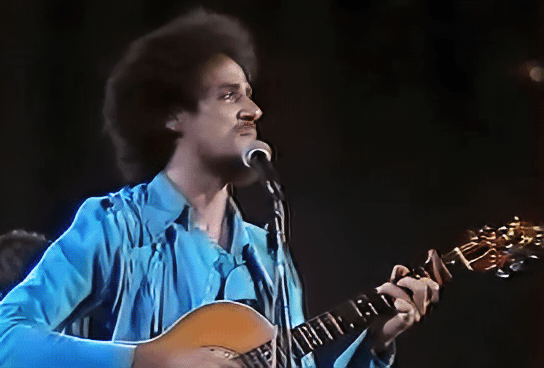
Rio de Janeiro - RJ - 1980
Zé in 1981 in Fortaleza - CE
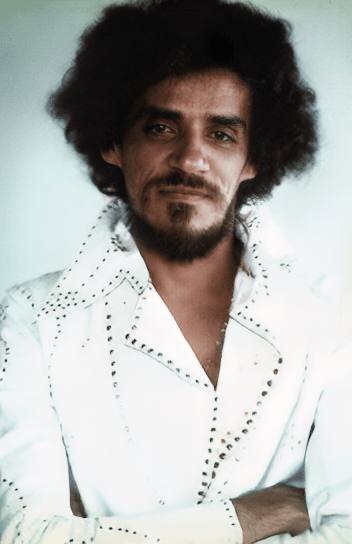
Fortaleza - CE - 1981
Roberta and Zé Ramalho had first met in Fortaleza, in his show “Frevo Mulher”, in April 1980. She was 15 years old at the time and had him sign her an autograph. Exactly 4 years after that, in April 1984, they met once again in Rio de Janeiro, to make a brand new life together. In that occasion, the couple was guest to Raul Seixas for three memorable days.
Zé with Raul Seixas - Print of the video
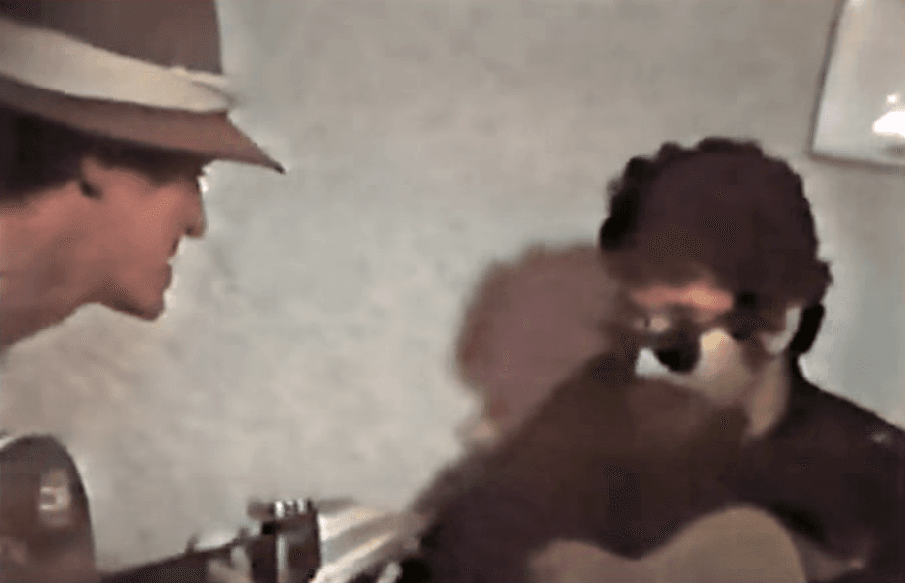
Rio de Janeiro - RJ - april of 1984
Zé and Roberta
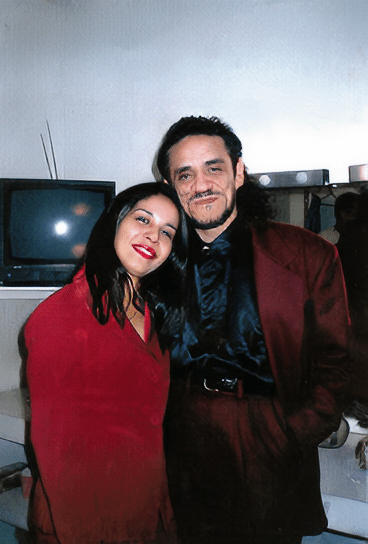
Rio de Janeiro - RJ - 1997
After fighting against difficulties and problems that 80’s brought, Roberta & Zé built a long life together, married themselves in Rio de Janeiro, where their kids – José (designer) and Linda (singer), were born and are together until nowadays. She is lawyer by Puc-rio and CEO of Avôhai Music, label and publisher from his career and lyrics.
The mid 1980 represented a small decrease in Zé Ramalho’s popularity, with his music albums “Pra não dizer que não falei de rock ou por aquelas que foram bem amadas” (1984), “De gosto, de água e de amigos” (1985), “Opus Visionário” (1986) and “Décimas de um cantador” (1987) underperforming. In 1985, however, Zé achieved great success with the song “Mistérios da meia-noite”, popularized by the Brazillian telenovela “Roque Santeiro” (produced by Rede Globo).
1990 - 2000
Between 1990 and 1991, Zé performed in the United States for a Brazilian audience at Halloween party, due to “Mistérios da meia-noite” success. Sadly, in 1991, his only sister, Goretti, died by an aggressive cancer. Even though, he was still able to record his tenth album, “Brasil Nordeste” (1991), and once again returned to fame with “Entre a serpente e a estrela” (1992), an Aldir Blanc version featured in the telenovela “Pedra sobre Pedra” (Rede Globo).
In 1992, his fifth son (born to his beloved wife Roberta) was born, and then released the eleventh album, “Frevoador”. This album’s feature song is a Bob Dylan adaptation (“Hurricane”). In 1995, his second daughter was born: Linda. Since then, good winds were blowing and that successful carreer has never left him again…
1996 - Cidades e Lendas.
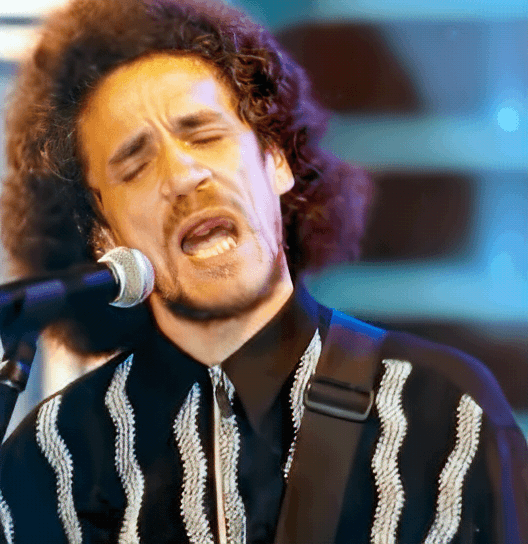
Raul Gil TV Show - São Paulo - SP - 1996
In 1996, Zé recorded his twelfth album “Cidades e Lendas”, and in celebration of his 20 years of career, released “20 Anos – Antologia Acústica” (1997), a massive success that sold over 1,5 million units, considered by many his crowning career album. Zé then started a partnership with Robertinho de Recife, a famed guitarist and successful music producer. Under Sony Music’s label, Zé released the celebratory box set, “Zé Ramalho – 20 anos de carreira”, featuring a compilation of songs previously released under collaborations with other artists, and as a part of diverse TV shows soundtracks. Celebrating his 20 years as a music artist, Luciane Alves wrote the book “Zé Ramalho – um Visionário do século XX” (“Zé Ramalho – a 20th Century Visionary”).
1997 - “20 anos – Antologia Acústica”
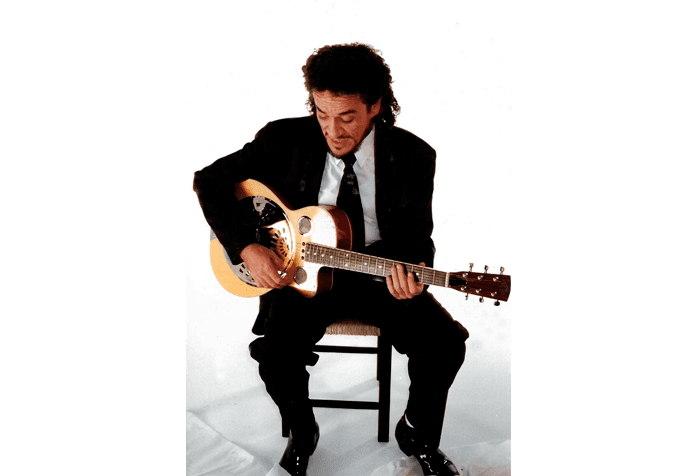
Álbum “20 anos – Antologia Acústica” - 1997
Before the turn of the millennium, the song “Admirável Gado Novo” (first released in Zé’s second album, in 1979) was the “landless ones” theme of the telenovela “O Rei do Gado”, whose soundtrack broke every sales records, selling over 3 million units. In 1998, Zé released his fourteenth studio album, “Eu sou todos nós”, as well as “Nação Nordestina” in 2000. This represented an ode to the music and culture of Brazil’s northeastern region, being later a candidate for the Latin Grammy Award for “Best Regional Music Album or of Brazilian Origins”.
2001 – 2011
Zé’s first hit album of the 21st Century was “Zé Ramalho canta Raul Seixas”, featuring covers of the late Raul Seixas, an acclaimed singer and close friend of Zé. In 2002, Som Livre label released “Perfil”, an album featuring the greatest hits of his carreer. In that same year, Zé recorded his eighteenth album, “O Gosto da Criação”.
“Estação Brasil” was released in 2003, featuring 20 recordings of his main Brazilian influences. In 2005, Zé Ramalho did a collab song with the duo Chitãozinho & Xororó, named “Sinônimos” (Synonyms), featured in the album “Aqui o Sistema é Bruto” (‘Here, the system is brutal”). Still in 2005, he recorded his first live album, simply titled “Zé Ramalho ao vivo”, where he recorded another version of “Sinônimos” (Synonyms), that up to this day has achieved more than 400 million views on his official Vevo Youtube channel!
In 2007, he recorded “Parceria dos viajantes”, nominated for the Latin Grammy Award for “Best Brazilian Popular Music Album”. In 2008, Zé released a live album recorded in 1976, called “Zé Ramalho da Paraíba”, followed by a tribute to great American singer and composer Bob Dylan: “Zé Ramalho canta Bob Dylan – Tá tudo mudando”. This album was nominated for the Latin Grammy award for “Best Pop Rock Music Album”.
Zé and Luiz Gonzaga in 1985
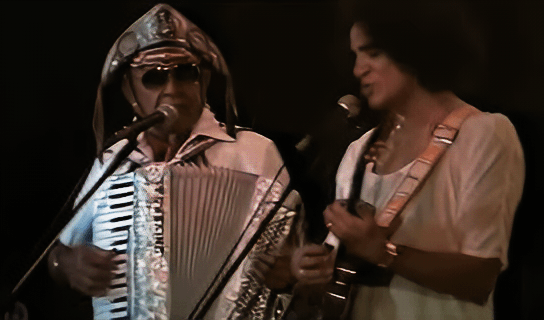
Zé and Luiz Gonzaga - Rio de Janeiro - 1985
In 2009, the album “Zé Ramalho canta Luiz Gonzaga” was released, paying tribute to the famed Brazilian musician often refered to as “O Rei do baião” (King of baião). In 2010 and 2011, respectively, he released two more tribute albums: “Zé Ramalho canta Jackson do Pandeiro”, and “Zé Ramalho canta Beatles”, in tribute to the famed british quartet.
In 2010, Sony Music released a box called “Zé Ramalho – a Caixa de Pandora”, a set with 4 CDs and 1 DVD. It features rare and previously unauthorized recordings like “Amigo” (Friend) from Roberto Carlos and Erasmo Carlos, featuring his longlife friend and partner Fagner.
2012 – 2021
In 2012, Zé Ramalho, along with his wife Roberta Ramalho, created their own record label, named Avôhai Music, through which he released the studio album “Sinais dos Tempos”. In September 2013, Zé performed at Rock in Rio with the hit Brazilian thrash metal band Sepultura – the lineup was labeled as “Zépultura”, a portmanteau of both artists’ names. The show broke public records and had an overwhelming reaction of heavy metal fans.
In 2014, Zé Ramalho released a collaborative live album (CD and DVD) with singer and friend Fagner, entitled “Fagner & Zé Ramalho”.
In 2016, under Avôhai Music and Discobertas labels, Zé released the celebratory box set “Zé Ramalho voz e violão – 40 anos de música”, in homage for his 40 years active as a musician. In 2017, he released another box, “Zé Ramalho Anos 70” (Avôhai Music / Discobertas).
His celebration continued, as in 2018 Zé released a remake of his first album (“Zé Ramalho”), named “Avôhai 40 anos – remake pop rock”. This album featured some songs created by his family: Linda Ramalho (daughter, born in 1995) sang “Voa Voa”. His son, João Ramalho (1979), sang “A Noite Preta”, and Antônio Ramalho (son, born in 1978) played guitar in “Adeus Segunda-feira cinzenta”, under his own band Prima Facie.
In 2019 Zé released “A Peleja 40 anos – remake pop rock”, featuring once again some of his offsprings. Linda Ramalho sang “Pelo Vinho e Pelo Pão” along with Rob Endraus, Robertinho de Recife’s son and Zé and Roberta’s godson. João Ramalho sang “Beira-mar” and Antônio played guitar in “A Peleja do Diabo com o dono do céu”, along with Prima Facie.
Show em 2020
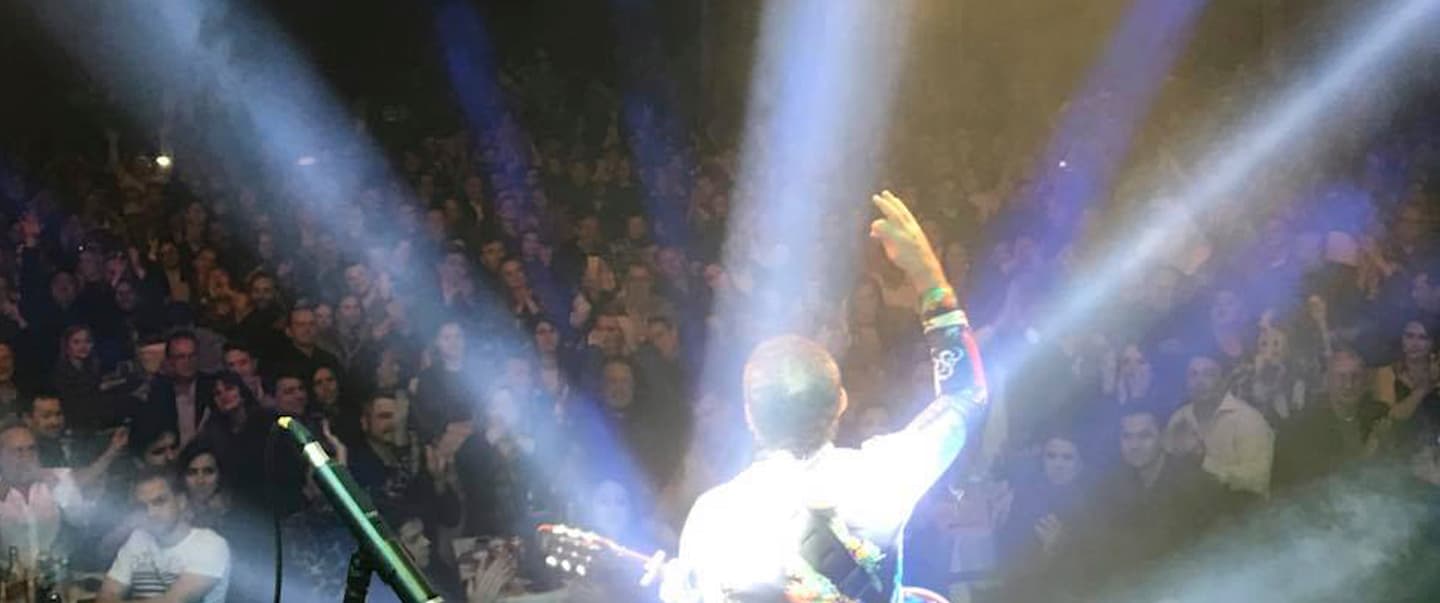
Show em 2020
In that same year, he released “Zé Ramalho Cine Show Madureira”, a live album recorded at the time 40 years ago, in 1979. “Zé Ramalho na Paraíba” was also released in 2019. It was recorded at Teatro Pedra do Reino in João Pessoa.
In 2021, during the Covid-19 pandemic, he released one more box, entitled “Garimpo das Raridades” with a compilation of rarities never recorded before and collaborations with friends along the career.
